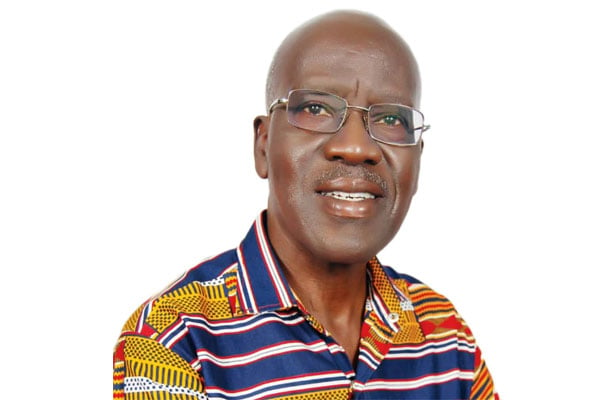Prime
There was once a man called Aryada

Prof Timothy Wangusa
What you need to know:
‘‘Of James Aryada, let this be said: that he was not only a great man – he was a rare man”
Last Sunday, March 5, in this column I made mention of the ingenious mathematics teacher who made the most startling announcement to my class of Senior Four finalists at Nabumali High School in 1961: “And now, ladies and gentlemen, you have finished doing all the arithmetic there is.”
It was he that precipitated that supreme moment of felt achievement that made us look at our fantastic selves in gaping incredulity.
His name was James Aryada (1921-1984). Mathematician, pianist, and an all-rounder, he was initially the only Black man with a university degree (later joined by biologist John Kaluma) on Canon Philip Bottomley’s staff, and that from Oxford.
His was the neatest handwriting you ever saw on the blackboard. A magician with figures and calculations, he was the inspiration of the brilliant, a compassionate waiter upon the slow-learners.
Simple and spotless in his dress, he was also clear and deliberate in every syllable of his speech. A brainy, strict churchman, though in his mid-to-late 30s, rumoured to be still chaste. A specialist yet so versatile he could teach any other school subject.
An orphan child of Samia parentage, brought up near Mbale by his maternal uncle, he had, despite his childhood stinted material means, excelled at school and had attained academic distinction without losing his basic humanity.
It is a pity that precious things are said even about diabolic men, once they are gone. But of James Aryada, let this be said: that he was not only a good or great man – he was a rare man. He was an enigma: an enviable, role model combination of high intellect, holiness and good sense. In his presence, foolish talkers ridiculed themselves and careless opinion-givers were challenged and suddenly taken aback.
His witticisms were unforgettable. Once overhearing one of us Senior Four students self-confidently quote the well-known English proverb, “Two heads are better than one,” Aryada subtly added, “– of them!” Henceforth, we knew that, realistically speaking, “Two heads are better than one of them”.
In 1963 he got married to his former student Naomi; in 1969 he was appointed Chief Inspector of Schools; and in 1979 he was appointed Deputy Commissioner in the Public Service. Abruptly and senselessly retired in his prime from the post of Chief Inspector of Schools by President Idi Amin of painful memory, Aryada went back to his lifetime vocation of classroom teaching, and humbly taught for several years at Mbale Secondary School under the headship of one of his former pupils at Nabumali. For this vocation he had more than a decade earlier turned down the offer of a university lectureship and a headmastership. Those were not capacities in which he felt he could make his utmost contribution at the time.
One of the lay canons of the Church at the time, Aryada was a man of a faith that “never cried aloud in the streets”. And his was such a simple lifestyle that his incredible killers must have found precious little worth stealing in his Kololo home on that fatal night in 1984. This was the man who had indeed taught us at Nabumali that “money must be earned, not obtained”.
“Master, the terror is over!” Thus asserted the farewell music of organ and choir voices in triumphant crescendo at All Saints Cathedral, Kampala, where James Aryada had knelt in prayer as well as played the piano and the organ for years.
Upon its voyage home (depicted in that song by the international evangelist Billy Graham [1918-2018] which we were singing), man’s soul has just cried out amid the storm to the Lord of land, sky and sea –
When, in that ancient, clear small voice – the Lord answers: “Peace, be still! Peace, be still!” At once the storm musically surrenders its fury – and, in a moment of sudden visionary up-lift, I knew that my teacher James Aryada’s soul had safely come to port!
Prof Wangusa is a poet and novelist. [email protected]



